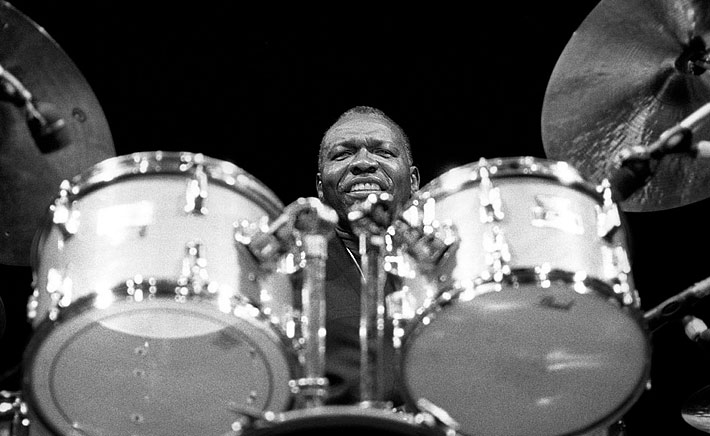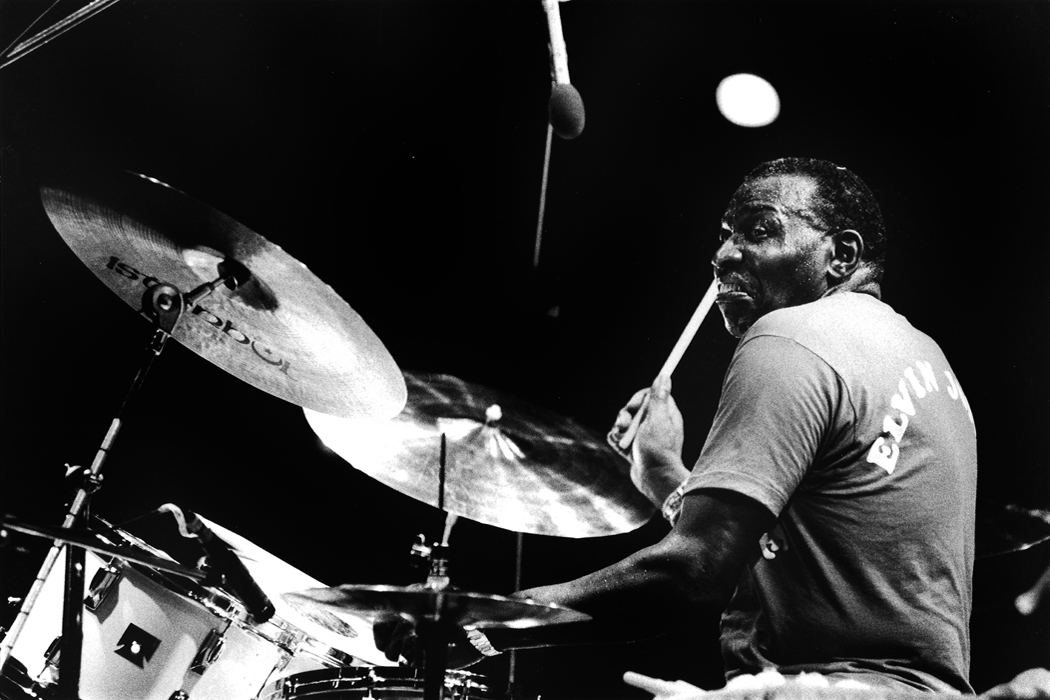
Many music critics regard Elvin Jones as the most influential drummer in the history of jazz. His revolutionary style transformed the drums as a traditional time-keeping instrument. Employing a multilayered, rhythmic approach, Jones created a dynamic interplay with soloists unprecedented by earlier drum stylists. Early in his career, he performed with such jazzmen as Charles Mingus, Bud Powell, Sonny Rollins, and Miles Davis. However, it wasn’t until he joined the John Coltrane Quartet in 1960 that Jones began to attract international recognition. During his six years with Coltrane’s group, Jones contributed to some of the most celebrated recordings in the history of modern jazz. For over four decades, his innovative rhythmic technique has served as a catalyst for drummers seeking greater improvisational freedom.
Using only a standard drum kit–without the aid of any electronics–Jones’s innovative techniques greatly influenced modern jazz drumming. One example is his circular style of drumming, an approach that uses broad sweeping movements across the drums. Often beginning an arrangement by introducing a simple pattern or theme, Jones perpetually builds the rhythm into a near- kinetic state. By removing the traditional four-four beat on the bass drum, he is able to create what he calls a more “constant flow of rhythm.” On the snare drum and cymbals, he plays irregular accents that often accompany soloists in furious dialogue. Although many modernist drummers have tried to imitate Jones’s techniques, they often lack his skillful execution.

Jones’s effect on modern music has been profound. His improvisational approach has helped to lay the foundation for the avant-garde and fusion jazz movements. A unique and gifted individual, Jones has redefined the role of the drums in jazz music. His influence extends to a new school of jazz drummers who perform on concert stages throughout the world. As he stated in the film documentary Different Drummer, Jones believes his revolutionary drum-playing style stems from the fact that he could never “comply to the standard form.” This rebellious spirit continues to compel Jones to devote his life to the pursuit of infinite rhythmic variations and creative expression.